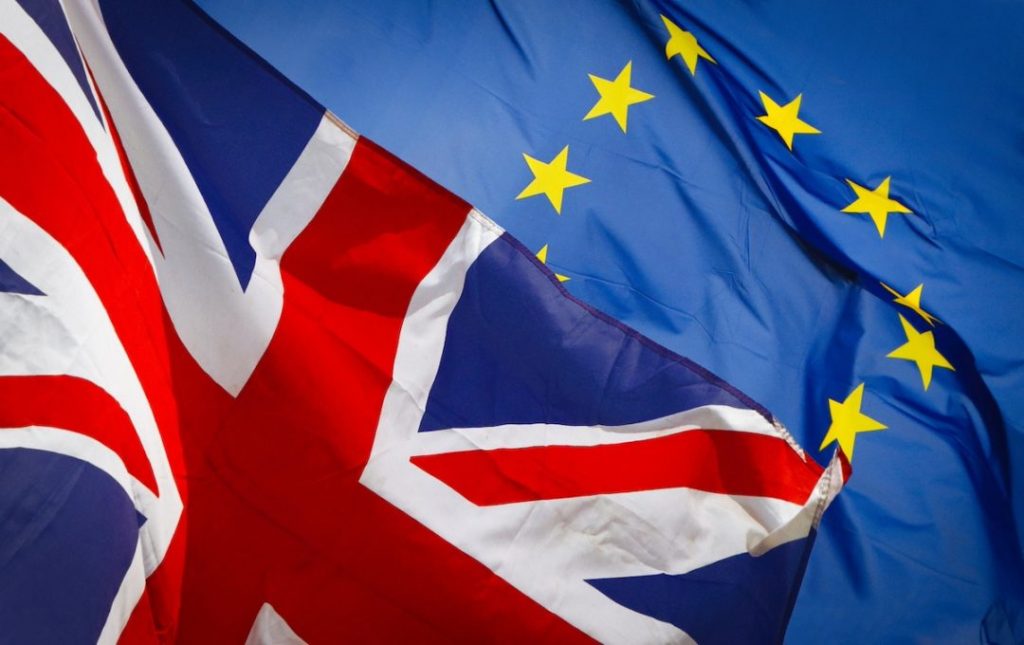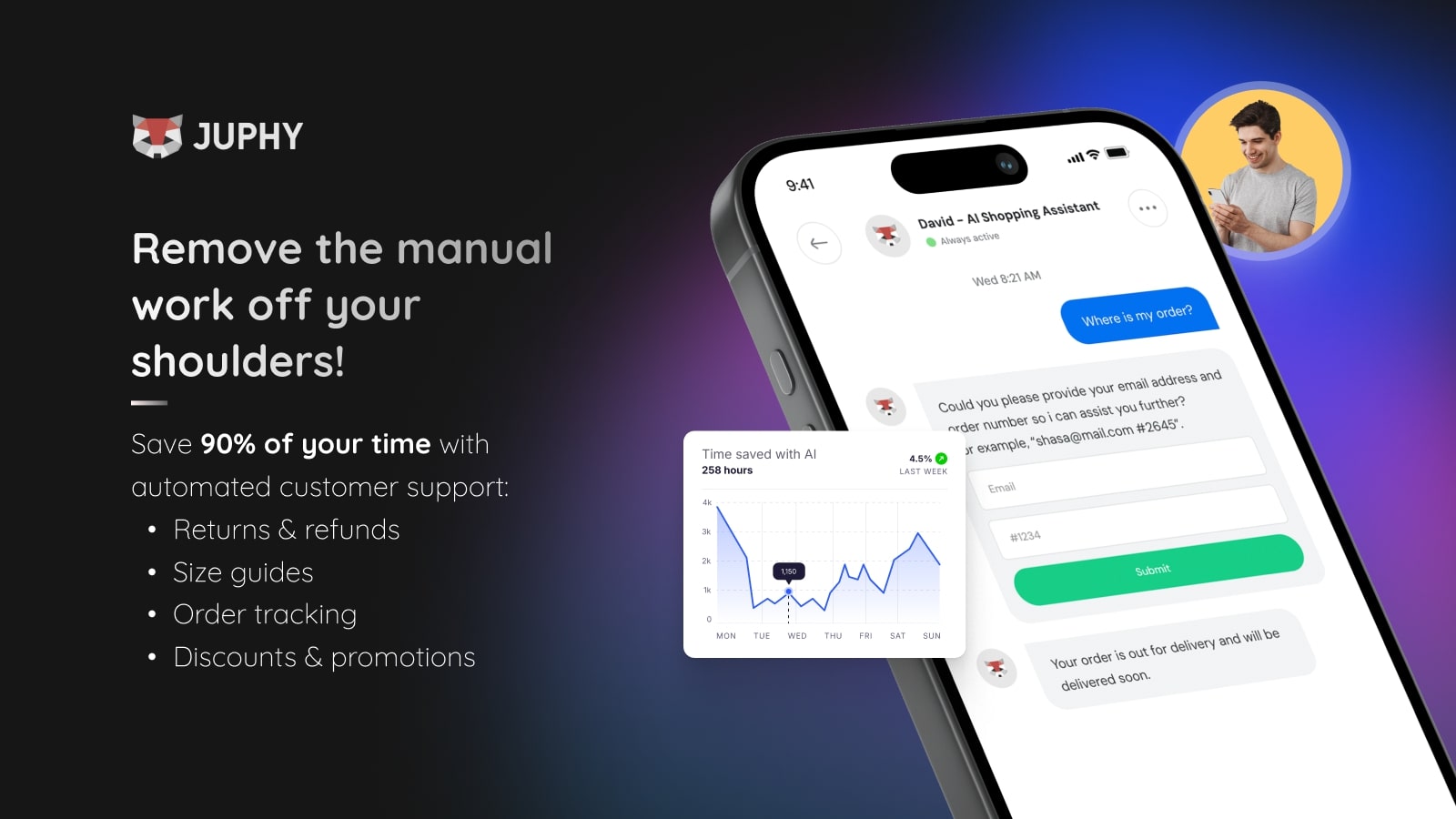Juphy’s Weekly E-Commerce News Express – 16-20 December 2024
Ceyda Duz
Get ready for this week’s e-commerce and AI news roundup! We’ll dive into how November online sales outpaced other retail categories, explore the impact of new EU regulations on UK sellers in the European market, and highlight the latest product updates from TikTok Shop, Loop, and ShipStation. Stay tuned for all the key insights you need to know when it comes to online shopping, retail, and the latest e-commerce innovations!

November Online Sales Outpace Other Retail Categories
November 2024 saw online retail continuing to shine, even though some of the year’s biggest sales, including Cyber Monday, shifted into December. According to data from the National Retail Federation (NRF) and the U.S. Census Bureau, online sales experienced strong year-over-year growth, cementing the importance of e-commerce during the holiday season.
Key November Sales Insights
- Online retail sales increased by 21.48% year over year, demonstrating the continued dominance of e-commerce.
- Despite the shift of Cyber Monday into December, month-over-month growth for online sales was still positive at 1.32%.
- On Cyber Monday (which fell on December 2), U.S. consumers spent a total of $13.3 billion, making it one of the largest online shopping days of the year.

Although Cyber 5 (the five-day stretch from Thanksgiving through Cyber Monday) spanned into December this year, which impacted November’s figures slightly, the overall trend remained positive. November’s strong performance, coupled with December’s early spending, has set the stage for another successful holiday shopping season.
Performance Across Retail Sectors
While online sales increased, other retail sectors showed mixed results. The NRF’s data highlights that online and non-store sales led the way in both month-over-month and year-over-year growth, while some in-store categories faced declines. For example:

- Grocery and beverage stores saw a 5.31% increase year over year, reflecting ongoing consumer demand for essentials.
- Clothing and accessories stores reported a 4.21% increase, showing continued interest in fashion despite challenges in other areas.
- On the other hand, categories like electronics and appliances and sporting goods faced declines, with year-over-year drops of 7.28% and 7.39%, respectively.
These statistics illustrate the shifting consumer priorities, with essential goods and online shopping taking precedence over some optional purchases.
Holiday Spending Expectations
Despite some mixed performances, the overall outlook for holiday spending remains strong. NRF forecasts total holiday sales from November 1 through December 31 to grow between 2.5% and 3.5% compared to 2023, which would bring total holiday spending to $979.5 billion to $989 billion. Online sales are expected to grow even faster, with an 8% to 9% increase year over year. The NRF expressed optimism about the holiday season, attributing strong consumer spending to factors like wage growth, job security, and modest inflation.

The Rise of E-Commerce in Holiday Shopping
The data reveals the continued importance of e-commerce as a key player in the retail industry. Although some in-store categories faced declines, online retail remained a standout performer. With shopping patterns shifting and more consumers turning to digital platforms, e-commerce will likely continue to drive much of the holiday season’s growth.
As we move further into December, these trends indicate that online shopping will remain at the forefront, contributing to a strong finish to the holiday season. Retailers will need to stay agile to meet this demand, offering seamless online shopping experiences to capitalize on the momentum.
New EU Regulation Challenges UK Sellers in the European Market
A new European regulation, the General Product Safety Regulation (GPSR), is forcing many UK-based online sellers to rethink their operations in the EU. The regulation, which came into force on December 13, 2024, aims to ensure that all consumer products sold in the EU meet strict safety standards. As a result, many UK merchants are pulling back from selling to EU customers due to the new compliance requirements.
Key Changes Under the GPSR

The GPSR mandates that non-EU products can only be sold in the EU if an economic operator within the union is responsible for their safety. This has created significant challenges for UK-based sellers, who must now find a way to comply or halt their sales to the EU.
The regulation also gives EU citizens a “right to remedy” for unsafe products and focuses on stronger enforcement, making it easier for consumers to report safety issues. These changes are expected to improve product safety across the EU market.
Impact on UK Sellers
The new rules have caught many UK merchants off guard. Some sellers, even larger ones, have opted to stop selling to the EU due to the regulatory burden. Many smaller businesses lack the necessary arrangements to comply, which could impact their sales in the region.

Northern Ireland’s Unique Challenges
The GPSR also affects Northern Ireland, which remains subject to some EU regulations despite being part of the UK. As a result, many UK businesses are now avoiding sales to Northern Ireland, potentially excluding consumers there from the UK retail market.
The GPSR is reshaping how UK sellers approach the EU market, with compliance costs and regulatory hurdles leading some to withdraw entirely. UK merchants will need to adapt quickly or risk losing access to the valuable EU market.
TikTok Shop Expands to Ireland and Spain

TikTok Shop has officially launched in Ireland and Spain, introducing a range of features designed to enhance the shopping experience. Users can look forward to live shopping events, shoppable videos in the “For You” feed, product showcases, affiliate programs, and targeted shop ads, all supported by a secure checkout system. In Ireland, the launch includes a partnership with Guaranteed Irish, helping consumers easily identify local products and merchants. This expansion highlights TikTok’s growing focus on e-commerce and its commitment to supporting local businesses in new markets.
Loop Expands Returns Platform with Wonderment Acquisition
Loop, a commerce returns platform, has acquired Wonderment, an order-tracking and customer experience software tailored for Shopify merchants. Wonderment’s features include real-time shipment insights, proactive alerts, and seamless integrations, all accessible through a unified interface. With this acquisition, Loop aims to enhance its offerings by integrating AI-powered insights, turning shipping and returns data into actionable strategies for merchants. This move strengthens Loop’s commitment to optimizing post-purchase experiences for e-commerce businesses.

ShipStation Partners with Adobe Commerce to Enhance Merchant Shipping

ShipStation, a shipping software by Auctane, has expanded its partnership with Adobe Commerce to bring advanced shipping tools to merchants. Through the ShipStation extension, Adobe Commerce sellers can access features such as price comparisons, shipping label printing, workflow automation, and in-cart delivery options for storefronts. The integration also includes shipping cost calculators, enabling merchants to offer transparent delivery options to their customers. This collaboration aims to streamline shipping processes and improve the overall e-commerce experience.
Never Miss a Sale: Enhance Support with Juphy’s 24/7 AI Agent
As the year comes to a close, e-commerce merchants can’t afford to slow down—especially when online shoppers continue to demand attention around the clock. After-hours queries can quickly pile up, leaving customers frustrated and sales slipping through the cracks. But with Juphy AI, you can leave these challenges behind. Juphy AI, now ‘Built for Shopify’ badged, offers seamless, 24/7 customer support in over 98 languages.
Powered by ChatGPT, it can handle a wide range of customer inquiries—from refunds and exchanges to order tracking, product details, and pre-and post-purchase questions. This ensures your customers receive fast, accurate responses at any time, even when your team is offline. Juphy’s AI Agent isn’t just about answering questions—it’s about maintaining high-quality service outside of regular hours. By automating responses and managing a high volume of inquiries, Juphy AI reduces the workload on your support team, allowing you to focus on growing your business without sacrificing customer satisfaction.
Ready to transform your customer support? Try Juphy AI now and experience its power: apps.shopify.com/juphy

Key Takeaways
November Online Sales: November 2024 saw a 21.48% year-over-year increase in online sales, with a 1.32% month-over-month growth despite Cyber Monday falling in December. Cyber Monday alone drove $13.3 billion in U.S. consumer spending, cementing e-commerce as the holiday season’s standout performer. Retailers focused on essentials like groceries and clothing while other categories like electronics faced challenges.
New EU Regulation Challenges UK Sellers: The General Product Safety Regulation (GPSR) introduced strict safety standards for non-EU products, requiring an economic operator in the EU to ensure compliance. Many UK merchants, including those selling to Northern Ireland, are opting out of EU sales due to high compliance costs and regulatory burdens. This shift is reshaping UK-EU trade dynamics.
TikTok Shop Expands to Ireland and Spain: TikTok Shop launched in Ireland and Spain with features like live shopping events, shoppable videos, and affiliate programs. The platform’s partnership with Guaranteed Irish emphasizes local business support, showcasing TikTok’s growing role in e-commerce and consumer engagement.
Loop Enhances Returns Platform: Loop’s acquisition of Wonderment brings advanced order tracking, shipment insights, and AI-powered data strategies to Shopify merchants. This move enhances Loop’s focus on optimizing the post-purchase experience, turning returns and shipping data into actionable business strategies.
ShipStation Partners with Adobe Commerce: ShipStation’s collaboration with Adobe Commerce offers merchants price comparisons, workflow automation, and in-cart delivery options. The integration streamlines shipping operations, enabling merchants to provide transparent and cost-effective delivery solutions for customers.

